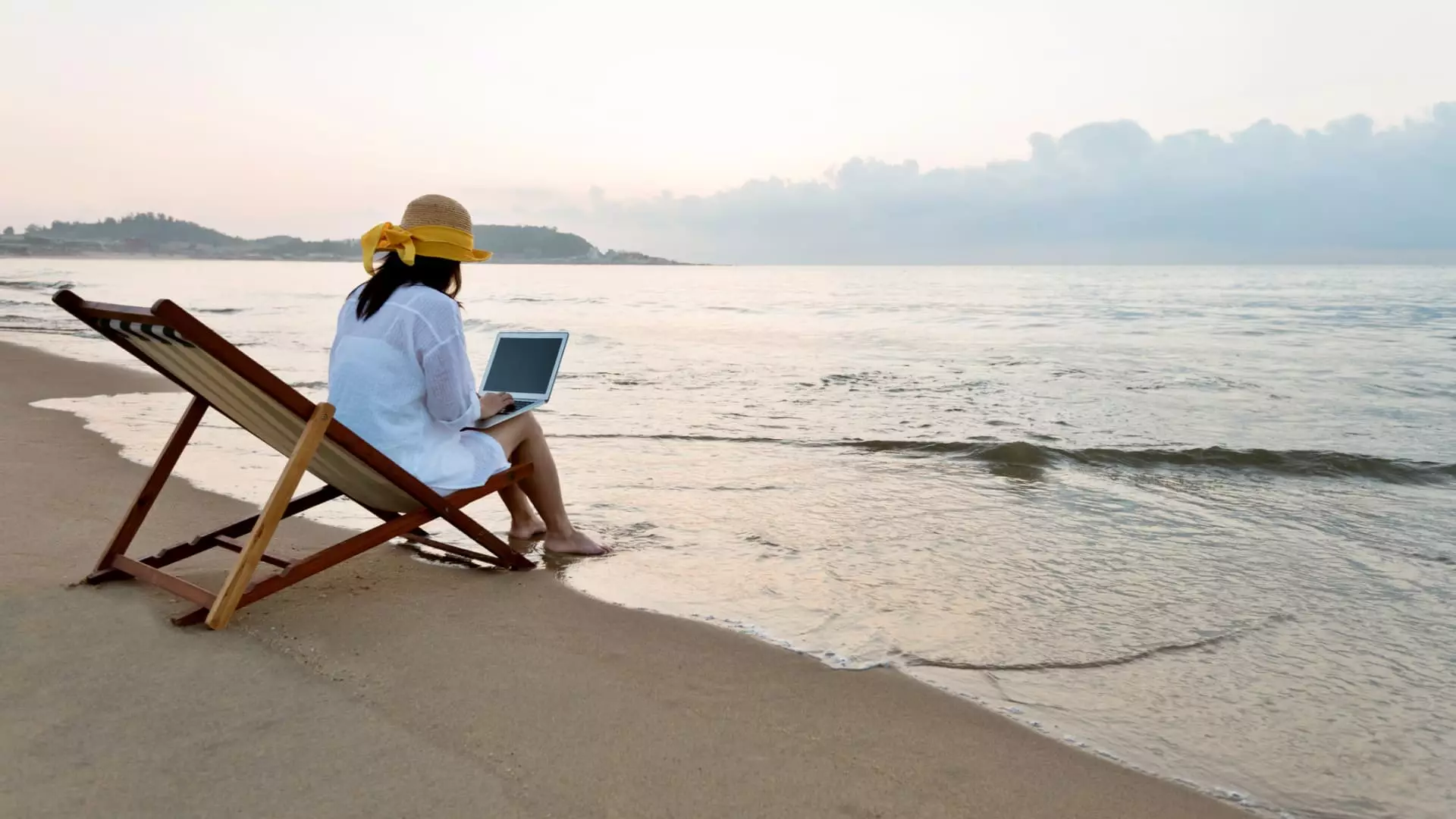The landscape of holiday travel in America has undergone significant shifts, especially in the wake of the COVID-19 pandemic. This holiday season, a pronounced trend is emerging: the blending of work and leisure travel, empowered largely by the flexibility of remote work. As more Americans seek to balance their professional obligations while exploring new destinations, various strategies have come into play to ensure that travel remains possible and affordable.
The Rise of ‘Laptop Luggers’
According to a recent survey conducted by Deloitte, a staggering 49% of employed Americans are planning to embrace the dual roles of worker and traveler, a group colloquially referred to as “laptop luggers.” This marks a notable increase from only 34% last year, indicating a substantial cultural shift in how Americans approach vacations. The key takeaway from this trend is that many workers no longer see time off as a binary choice—work or play. Instead, they are finding ways to incorporate both into a single experience.
Among various demographics, Generation Z—those born between 1997 and 2012—comprises a significant portion of laptop luggers, with 58% indicating that they will work while traveling. Such statistics emphasize the transformative power of technology and the internet, which allow younger generations greater freedom and mobility than ever before.
Income levels also radically transform holiday travel dynamics. The research revealed that 52% of high-income earners (individuals earning $100,000 or more) are more likely to consider travel expenses manageable. With this demographic largely unburdened by financial constraints, it becomes clear why they can afford the luxury of blending work with leisure. Conversely, individuals in mid- to lower-income brackets face more considerable financial pressures, prompting adjustments in travel strategies.
The majority of consumers (83% of holiday travelers) are employing cost-reduction strategies such as opting for driving over flying. Ted Rossman, an industry analyst at Bankrate, notes that while many travelers are ready to cut corners to minimize expenses, they are still committed to making the journey. By making thoughtful choices, individuals can enjoy holiday trips without compromising their financial well-being.
Millennials, born between 1980 and 1996, exemplify the trend of investing heavily into travel experiences. They are projected to take roughly 2.6 trips during the holiday season, with expenditures averaging around $3,927 according to the Deloitte survey. This willingness to spend resonates with the broader notion that individuals are valuing experiences over material possessions in today’s economy. The global pandemic has reinforced a desire to savor life, and it seems that travel is a quintessential way to fulfill this urge.
Amidst rising costs, however, the adaptability of travelers will be put to the test. Approximately 50% of respondents report scaling back on other expenses and seeking discounts and deals. The desire for adventure remains strong—even as individuals reassess their budgets and spending habits.
Smart Strategies for Remote Work Travelers
For those intending to work while enjoying their holiday, it’s crucial to approach this arrangement thoughtfully. According to Julia Pollak, chief economist at ZipRecruiter, employees must be fully cognizant of their company policies regarding remote work locations. Some organizations impose strict guidelines, requiring employees to remain within their home state or in the United States, which poses a potential risk of recourse should those regulations be violated. It is therefore advisable for employees to maintain open communication with their supervisors to establish parameters for working while on the road.
Furthermore, ensuring a conducive work environment should be a priority while traveling. Securing locations with robust electrical infrastructure and reliable Wi-Fi is non-negotiable, as the effectiveness of remote work hinges on technological resources.
As Americans emerge from the constraints of the pandemic, a novel approach to holiday travel has taken hold, characterized by an increased focus on work-life balance. The fusion of holiday experiences with professional responsibilities reflects broader societal changes and an ever-evolving understanding of work. Americans are not merely setting out to travel; they are doing so in ways that emphasize adaptability and financial mindfulness. This holiday season serves as a harbinger of a new era where people can define travel as a lifestyle that harmonizes work with leisure—ultimately redefining the very concept of taking a break.

